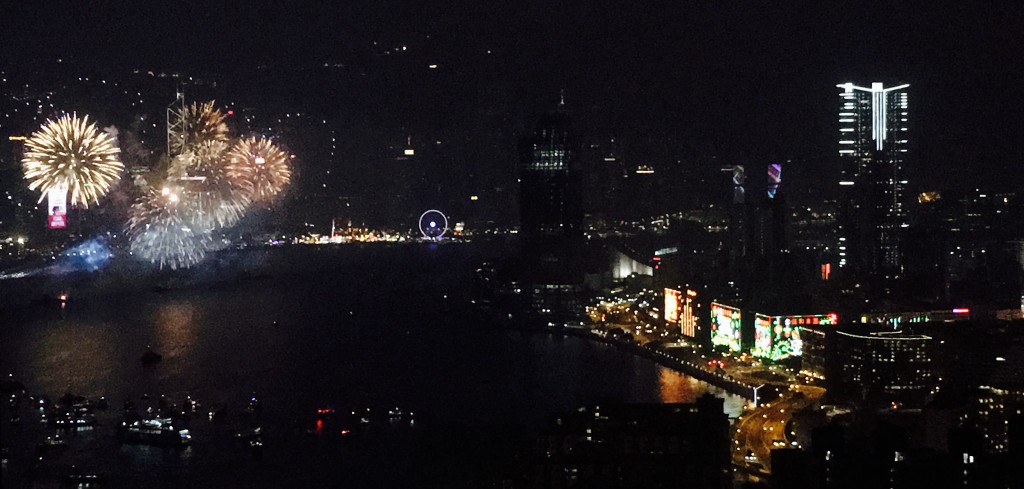Unit 2.1, Assignment 2.2 –– Home and what it means to me.
February 8th is the first day of the Chinese New Year of 2016 , and this is the time of year where my homesickness is at its worst. I’m not talking about just missing home, but aching for home, for Hong Kong, or as some of my friends have called it “Home Kong”. I remember my first year away from home I was experiencing that longing so badly that as soon as I heard gongs and drums from outside I immediately ran to my window to try and hear it better. Chinese New Year for me is like Christmas for some people; I get good food, see relatives I only see once a year, get caught up in the festive atmosphere, and most importantly, I get lai see (red pockets). But now, being away from all that, I’ve realized it’s more than just what we do, but it’s more the tradition of it––everything from preparing the house and the food, the fortune box, the red banners with golden imprinted letters of some auspicious phrase… The feeling surrounding Chinese New Year, the sense that “home” is more than place, that it includes traditions and culture, but also the people that celebrate and help create the festive, joyful atmosphere where I can fully immerse myself in.
Then these same people go on and cause something like the #fishballrevolution. The immediate reaction and the initial thought is: “This isn’t home. How can this be Hong Kong?”
Many of my friends have been posting on social media sites about this riot over fishballs and commenting that this is not the Hong Kong they know, nor is it the place they grew up in. But it is one and the same, just that circumstances have changed. When people talk about Hong Kong, we talk about the people of Hong Kong like they are an entity separated from the mainland China. Talk to any Hong Konger and they will tell you vehemently that we are not a part of China. We are, but we aren’t. We are more polite, more proper, more “civilized”, more free. The discrepancy between the peaceful civilized identity we built and the violence during the fishball riot is hard to reconcile, and so our response is that of denial. How can this be Hong Kong when we have always boasted of our civility to only act like barbarians over fishballs? Granted, this is a result of the #umbrellamovementHK and its unresolved tensions between the government and the people, but still.
I made a post titled identity crises back in 2014 for another class, talking about the colonization of the city I grew up in and how that has affected the people and their perceptions of their home. Hong Kong is an international city and the most visited city in the world, but underneath all the glamour and bright flashing neon signs is the identity that is shifting constantly, balancing between becoming the international city from Chinese backgrounds. That is who I am too. An international student from an international school, not quite local enough to be truly a Hong Konger, but not really Canadian enough to be Canadian either. So what is my sense of home? I’m not really sure anymore, but I feel it’s beginning to shift too.
————————————————————————
Works Cited
Chor, Laurel. “Graphics showing why ‘Hong Kong is not China’ go viral.” Coconuts Hong Kong. N.p., 2 July 2015. Web. 8 Feb. 2016.
<http://hongkong.coconuts.co/2015/07/02/graphics-showing-why-hong-kong-not-china-shared-widely>.
Iyengar, Rishi. “6 Questions You Might Have About Hong Kong’s Umbrella Revolution.” Time. N.p., 5 Oct. 2014. Web. 8 Feb. 2016.
<http://time.com/3471366/hong-kong-umbrella-revolution-occupy-central-democracy-explainer-6-questions/>.
Kwong, Vincent. 元旦日旺角舞獅2015. Youtube. N.p., 1 Jan. 2015. Web. 9 Feb. 2016.<https://www.youtube.com/watch?v=obEB6gT9YbA>.
Moss, Stephen. “Is Hong Kong Really Rioting Over Fishball Stands?” the Guardian. N.p., 9 Feb. 2016. Web. 9 Feb. 2016. <http://www.theguardian.com/lifeandstyle/shortcuts/2016/feb/09/hong-kong-fish-ball-revolution-china-riot>.
